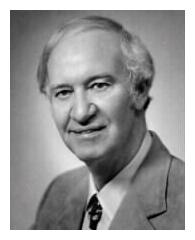|
Return to Home Page
Andragogy refers to a learning theory that addresses the special aspects of adult learning.

Overview:
This learning theory was introduced by Malcolm Knowles in 1968 (though it can be traced back to German grammar teacher, Alexander Kapp in 1833) in his article "Adult Leadership." Knowles wrote about this theory of Andragogy in order to address the special learning needs of adult students. Perhaps the most important component of this learning theory is that adult learners are most often "self-directed" and want to take an active part in their learning experience.
According to Knowles, learning experiences should be designed so that:
- Adults know why they need to learn something
- Adults need to learn through their own experiences
- Adults learn most often through problem-solving
- Adults learn best when the topic is of interest or use to them on a personal level
Overall, Andragogy focuses the learning experience for adults on the "learning process," rather than on the content.
Andragogy and Technology:
In her paper "Andragogy and Technology: Integrating Adult Learning Theory Theory As We Teach With Technology," Dolores Fidishun specifically applies the learning theory of Andragogy with the learning opportunities available through the use of technology.
Fidishun talks about six assumptions for adult learning and technology:
- "The Learner's Need to Know": The adult learner is more comfortable learning content when they understand why it is important. Technology can help the adult learner research and discover the importance of certain content areas in their own life through online searches for information. Once the student understands the importance of the subject matter, they can reflect on their research throughout the course of their lessons.
- "The Learner's Self-concept": Adults want to direct their own educational experiences so they feel like a participant in their own education. Technology can assist adult learners in this process as well. According to Fidishun, because of the "non-linear" process of web-based learning, adults can follow paths that they feel are important to their learning experience.
- "The Role of the Learner's Experience": Adult's have a lifetime of experiences that they like to share with other students, as well as experiences they can draw upon that informs their learning experiences. Technology can be used to supplement this tendancy if assignments are developed that encourage sharing experiences, and other "reflective learning" experiences.
- "A Student's Readiness to Learn": For adult learners, they perceive their need to learn something in terms of being able to move forward in life either in their education or in their workplace. This "readiness" to learn can be supported by incorporating technology that will prove useful to adult students in their everyday life. Applicability is a key to motivating the adult learner.
- "The Student Orientation to Learning": Adult learners ten to learn best through solving problems that face them. Fidishun encourages the development of lessons that are directly related to real-life issues.
- "Students' Motivation to Learn": For adult students, their desire to learn comes from internal motivation rather than external pressures. Technology should address this concern by building up student self-esteem and sense of accomlishment in each lesson.
Andragogy, as a learning theory, is very important to those instructors who find adult learners in their classrooms. By following these simple concepts for helping adult learners engage in their own learning process, the overall learning experience will likely be more successful!

Malcolm Knowles
|



